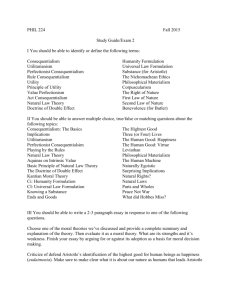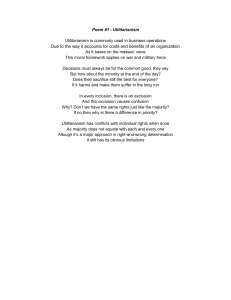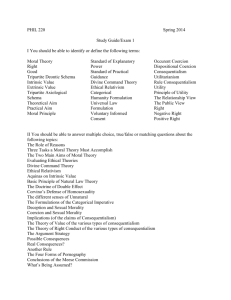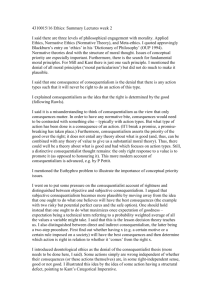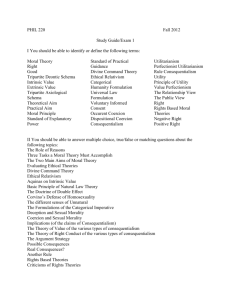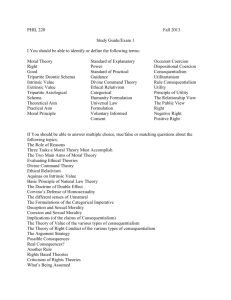PHIL 220
advertisement
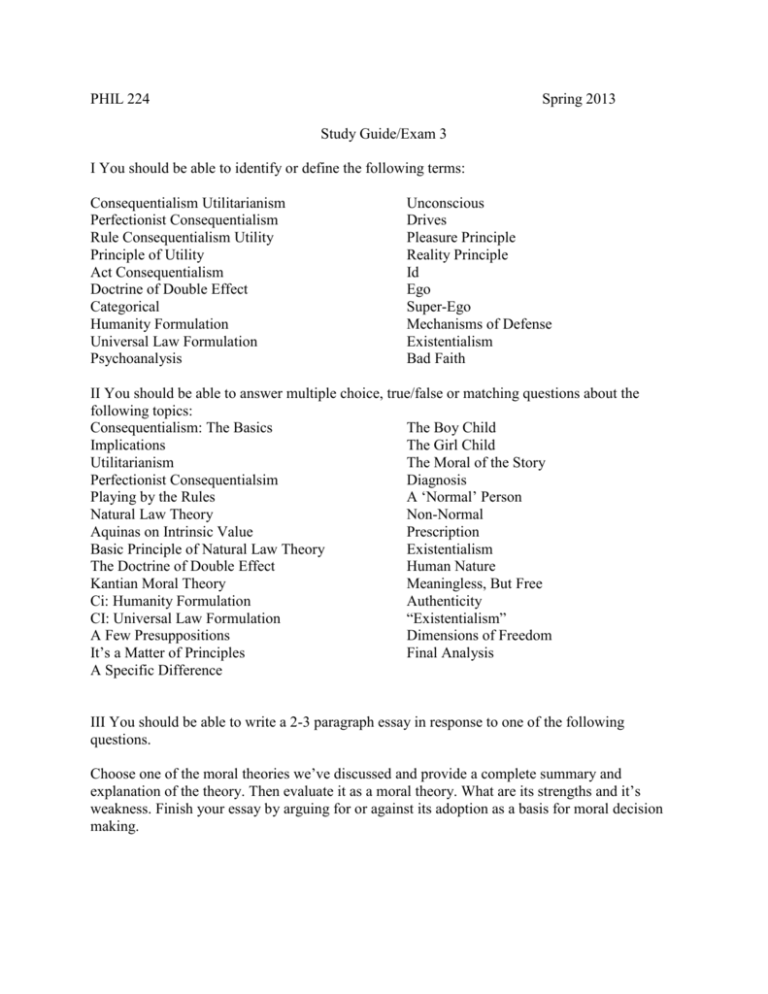
PHIL 224 Spring 2013 Study Guide/Exam 3 I You should be able to identify or define the following terms: Consequentialism Utilitarianism Perfectionist Consequentialism Rule Consequentialism Utility Principle of Utility Act Consequentialism Doctrine of Double Effect Categorical Humanity Formulation Universal Law Formulation Psychoanalysis Unconscious Drives Pleasure Principle Reality Principle Id Ego Super-Ego Mechanisms of Defense Existentialism Bad Faith II You should be able to answer multiple choice, true/false or matching questions about the following topics: Consequentialism: The Basics The Boy Child Implications The Girl Child Utilitarianism The Moral of the Story Perfectionist Consequentialsim Diagnosis Playing by the Rules A ‘Normal’ Person Natural Law Theory Non-Normal Aquinas on Intrinsic Value Prescription Basic Principle of Natural Law Theory Existentialism The Doctrine of Double Effect Human Nature Kantian Moral Theory Meaningless, But Free Ci: Humanity Formulation Authenticity CI: Universal Law Formulation “Existentialism” A Few Presuppositions Dimensions of Freedom It’s a Matter of Principles Final Analysis A Specific Difference III You should be able to write a 2-3 paragraph essay in response to one of the following questions. Choose one of the moral theories we’ve discussed and provide a complete summary and explanation of the theory. Then evaluate it as a moral theory. What are its strengths and it’s weakness. Finish your essay by arguing for or against its adoption as a basis for moral decision making. Present and critically evaluate Freud’s theory of human nature. As part of your presentation make sure to discuss his presuppositions, his conclusions about the structure of the personality, his diagnosis and his prescription. In your evaluation, make sure to argue for your position. Present and then discuss the moral implications of Sartre’s theory of human nature. As part of your presentation makes sure to discuss the concept of nothingness and its relation to freedom, the notions of bad faith and authenticity, and the specific dimensions of human freedom. When specifying the moral implications, pay paerticular attention to how these dimensions of human freedom condition our moral responsibilities.
